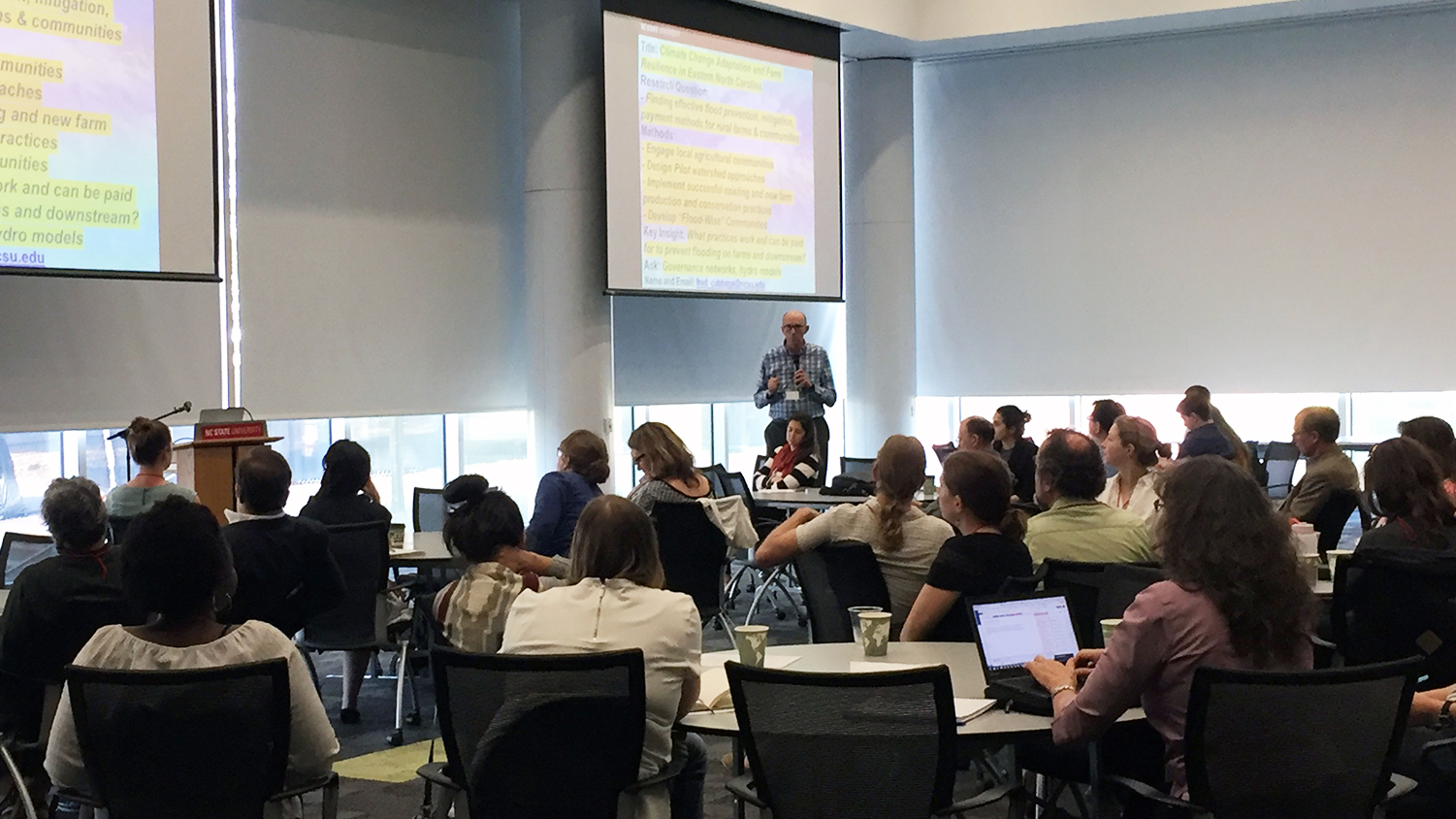Uniting to Collaborate on Disaster Response

On April 18, NC State held a campus-wide workshop focused on disaster research to inspire new partnerships between student, staff and faculty researchers at the university and beyond who are confronting challenges posted by hurricanes and other hazards.
The workshop focused on “sharing big ideas and strengths and opportunities for collaboration around disaster preparation, recovery and resilience,” says Bethany Cutts, faculty fellow at the Center for Geospatial Analytics and assistant professor in the Department of Parks, Recreation and Tourism Management.
Cutts co-organized the workshop with Angela Harris (assistant professor in the Department of Civil, Construction and Environmental Engineering) and Gavin Smith (professor in the Department of Landscape Architecture). As the group planned the event, they discovered that approximately 200 researchers across NC State work on disaster-related projects. “There is a lot of latent potential at the university” for collaboration, Cutts says.
At the workshop, faculty, research staff and graduate students presented two-minute lightning talks, exchanged ideas during networking breaks and discussed ongoing and future work in breakout groups. One goal of the workshop was to reveal “what tools and techniques are being used, what community relationships are in place and how to bring these pieces together,” Cutts reports. Participants also agreed to share announcements about funding opportunities and to help each other “identify opportunities for broad graduate student training grants and research proposals” on which they could collaborate.
Among the workshop’s over fifty participants were Center for Geospatial Analytics research associate Justyna Jeziorska, seven of the center’s faculty fellows and several of their students. Discussions by center researchers ranged from using drones and artificial intelligence to rapidly identify and analyze storm damage to engaging citizen scientists and social media to understand storm impacts. Participants from the center represented “a wide range of ways that faculty and students support the center’s mission” to find solutions with data, Cutts says.
The event was co-sponsored by the Global Water, Sanitation and Hygiene (WaSH) Interdisciplinary Research Cluster; Office of Research and Innovation; Department of Civil, Construction and Environmental Engineering; College of Design; College of Natural Resources and Center for Geospatial Analytics.
- Categories:


